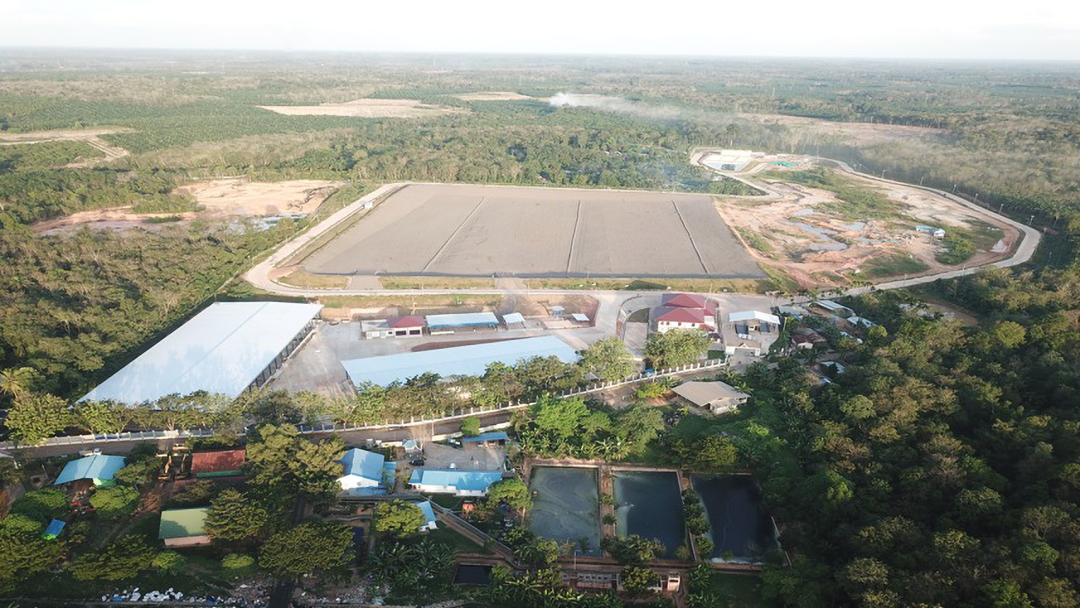
Until now, Indonesia’s solid waste was usually deposited, unsorted, in landfills. The amount of solid waste is high in cities in particular; at the same time, urbanisation in the Land of Thousand Islands is steadily increasing. KfW provided the East Asian nation with a low-interest loan of EUR 75 million on behalf of the Federal Ministry for Economic Cooperation and Development (BMZ) for construction of four landfills on Sumatra and Java that meet modern standards. KfW is implementing financing provided by the Swiss State Secretariat for Economic Affairs SECO for training the operating staff.
The new landfills including sorting and composting facilities in the cities of Jambi on Sumatra and Malang and Sidoarjo on Java have been completed, only some equipment is still missing to operate them, such as compactors. The training of the future landfill staff by international experts - prevented for a long time due to COVID-19 entry restrictions - has also taken place in the meantime. Thus, the landfill in Jambi could be opened at the beginning of 2021; likewise, the fourth site in Jombang was completed at the end of May 2022. The overall project could thus be completed by October 2022.
Landfills that meet modern standards are urgently needed in Indonesia as increasing urbanisation is generating more and more solid waste which has not been sorted for disposal up to now. The existing landfills, which are far from sufficient, are inadequately sealed off. so leachate makes its way into the ground water and rivers – and ultimately into the ocean. The improper landfilling of solid waste leads to pollution of the ground water, streams and rivers, air and soil; at the same time, the greenhouse gas methane is released into the atmosphere.
Poor solid waste management contributes significantly to the global problem of marine pollution. Indonesia is one of the largest marine polluters in the world. So within the framework of a national action plan, the country set the target of reducing its introduction of plastic waste into the ocean by 70% by 2025 and solid waste volumes on land by 30%.
KfW is not just financing four new modern landfills on behalf of the German Federal Ministry for Economic Cooperation and Development (BMZ); it is also supporting the municipalities responsible for their operation. Because, to date, they do not have sufficient capacity to organise, collect, sort, recycle, and dispose of solid waste generated by inhabitants in a manner that is environmentally friendly. The charges for waste disposal do not cover the costs and often go unpaid. So KfW’s project is also training the operators to ensure sustainable operation and maintenance of the new landfills. The Swiss State Secretariat for Economic Affairs (SECO) is financing these accompanying measures with a grant.
The Indonesian government set itself the ambitious goals of reducing greenhouse gas emissions and modernising waste management. Here too, the project has made a contribution by aiming to reduce emissions from the waste sector in each of the four communities and by taking all of the solid waste generated there to the new disposal centres. After the new landfills are put into operation, the intent is to decommission the previously unregulated landfills by properly containing them. The project thus makes a significant contribution to achieving SDG 14 by reducing the amount of solid waste entering the ocean.
Furthermore, it also makes a contribution to SDG 11 (sustainable cities and communities), SDG 12 (responsible consumption and production), and SDG 13 (climate action).